Introduction
This article narrates a person’s journey of working in the tech industry, who, unintentionally, had the curiosity to explore and learn more. It wasn’t about earning more money or growing a reputation as an expert.
He simply showed up whenever a problem needed fixing, or a new technology had to be used to complete a task.
His over a decade-long career shows why one should always explore new opportunities, no matter which profession they are pursuing.
Living The Life In New York
Vivek Radhakrishnan clicked the above image in New York City, New York, USA.
My bad. Ed Sheeran clicked this image with him (it turns out Ed is a really humble person).
Vivek worked in the United Nations Headquarters in Midtown Manhattan and had everything that most people dream of.

Here’s a typical night out with his wife to show what I mean.
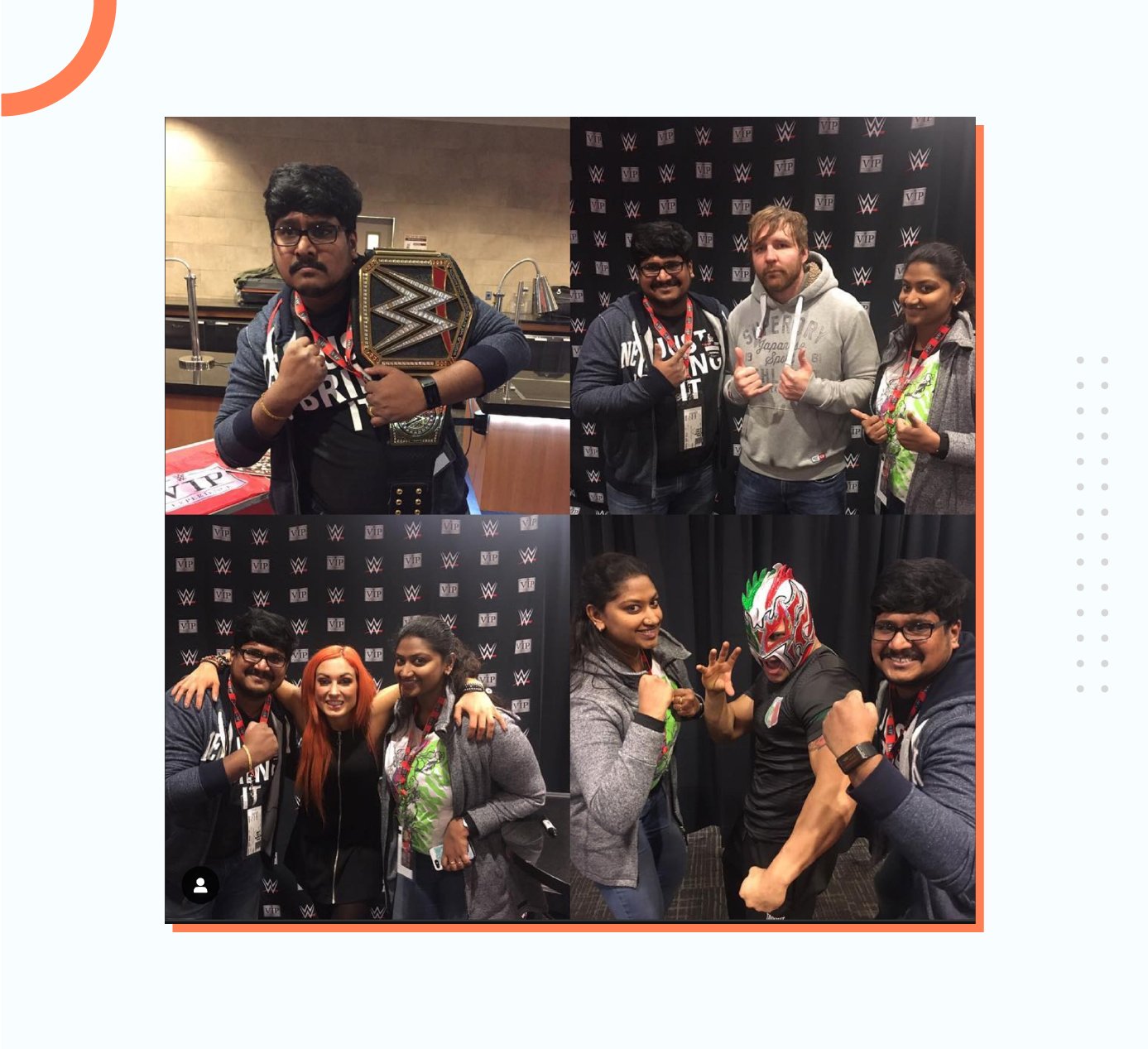
But His Journey Started Thousands Of Miles Away In Chennai
Vivek wasn’t a bright-eyed, studious kid in school. Nor did he have the typical dreams of becoming a pilot, an engineer, or a disc jockey.
“I never felt that I had to become this or that growing up,” he said.
He was naturally attracted to doing things that most people wouldn’t consider an option.
And this tendency—to chart out his own way—influenced his decision of picking a major in school and college.
Vivek Majored In A Subject Mostly Overlooked By His Friends
He relocated for higher education—over 300 miles away in Coimbatore—to study electronics and instrumentation.
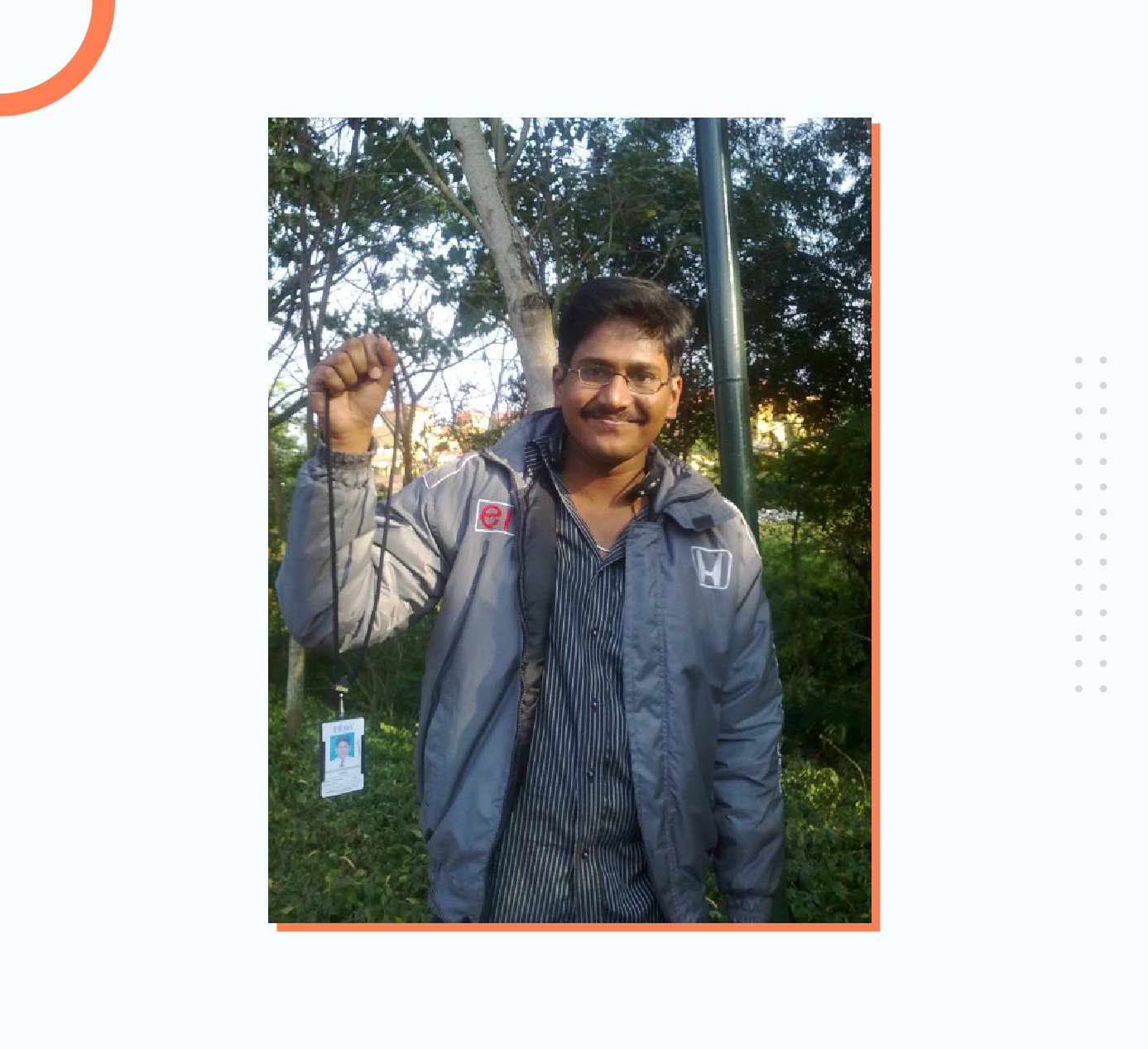
“I came out of my shell when I started living in a hostel,” he said.
His grades remained average. But for the first time, he started making his own decisions and learning from his mistakes.
Nobody told him what to do and what not to anymore.
“Independence gives you liberty. But it also teaches you important life lessons. When you’re independent, you’re responsible for your survival,” he shared.
This realization hit him deeply. And he realized: life is what one makes of it.
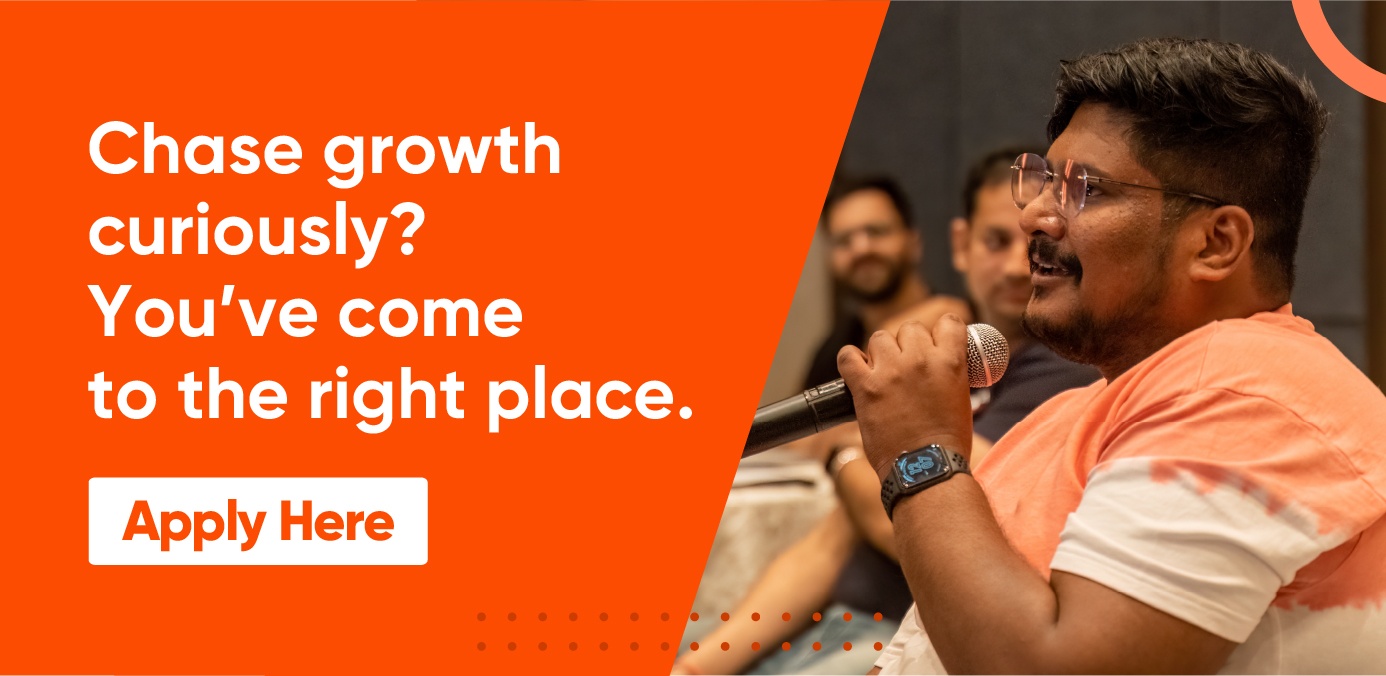
And He Did Many Odd Jobs Without Finding Them, Odd
He got placed in his third year at a reputed software development company.
But he had to wait six months before getting the final offer letter. And he was tired of depending on his parents for money.
“I returned home and joined a call center for an automobile company,” he shared.
He was a liaison between the customers and the mechanics, often handling critical requests from people whose cars broke down on the road.
This experience revealed to him how the company’s services affected its customers—what worked, what didn’t, and how to improve them.
He also worked at a post office for a time.
“I did all sorts of odd jobs. I never felt that certain jobs were beneath me since I’m an engineer,” he said.
Eventually Starting His Career As A Software Engineer
On the first training day, Vivek felt as lost as a child alone in a fair. His degree prepared him for all things physically electronic.
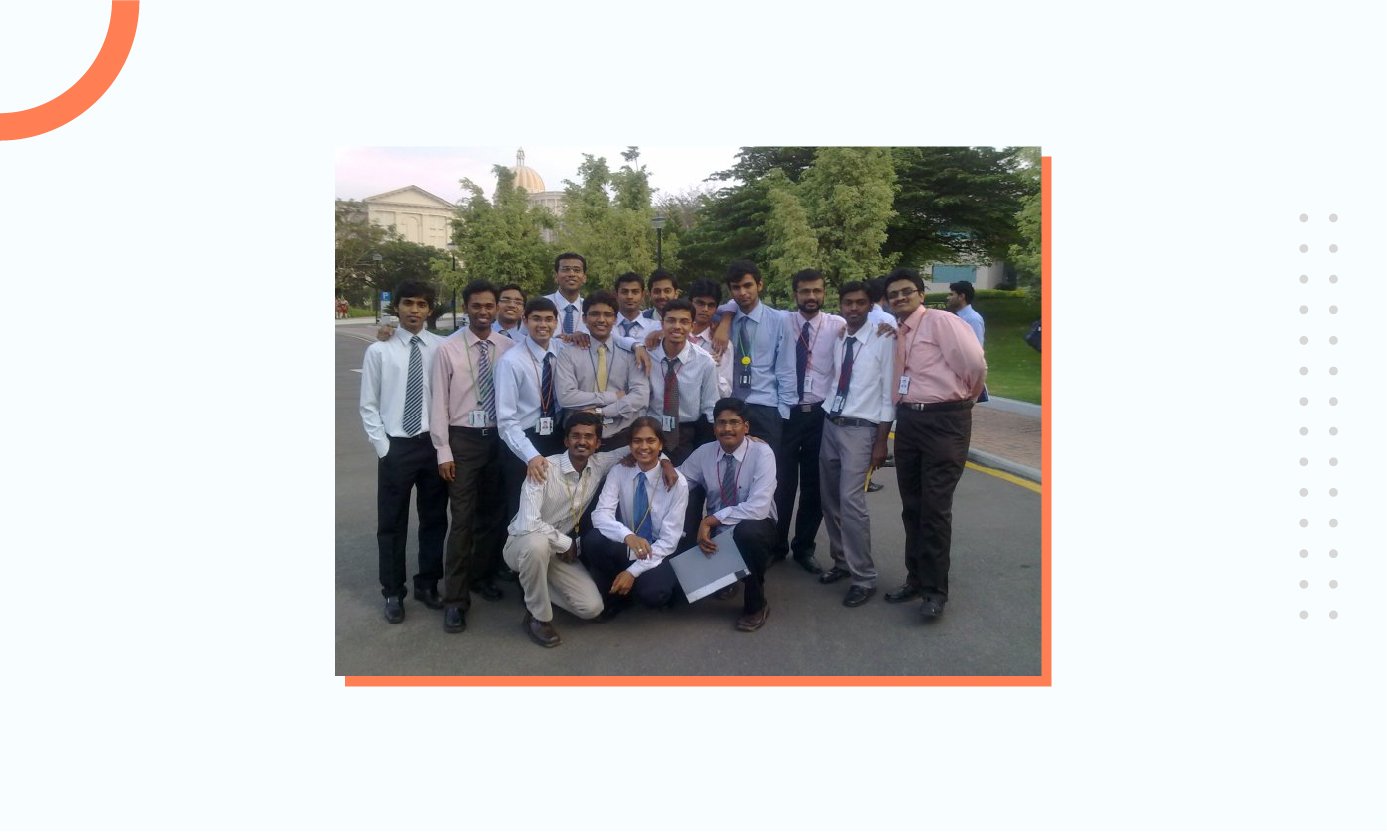
But software engineering was a whole other ball game.
The company assigned fresh recruits one of three technologies to train and specialize in: Java, .NET, and Mainframe.
Vivek got Java.
“I may as well have gotten Greek. I flunked in HTML and CSS during training. But I managed to pass the training,” he said.
And Carving Out A Reputation For Breaking Codes
On the first workday, he was assigned to a Warner Music Group project.
“As luck would have it, I had to work on HTML and CSS,” he shared, bursting out in laughter.
He carved out a reputation for breaking codes. “I’m more of an analytical, logical thinker. Not a syntax person,” he explained.
His manager shifted him to Quality Assurance, where he wouldn’t have to write codes.
Vivek felt bad about this. But it turned out to be a blessing.
And Then, For Writing Them
"While checking product functionalities, I'd focus on how the codes were written—why something worked or didn't," he said.
He began flagging errors, and then writing the codes to rectify them.
After a while, he started doing what he did as a call center executive—seeing products from the client's and end users' perspectives.
"Unknowingly, I started thinking as a business analyst and not only as a techie. I'd come up with solutions and ideas to improve products from a business perspective, too," he said.
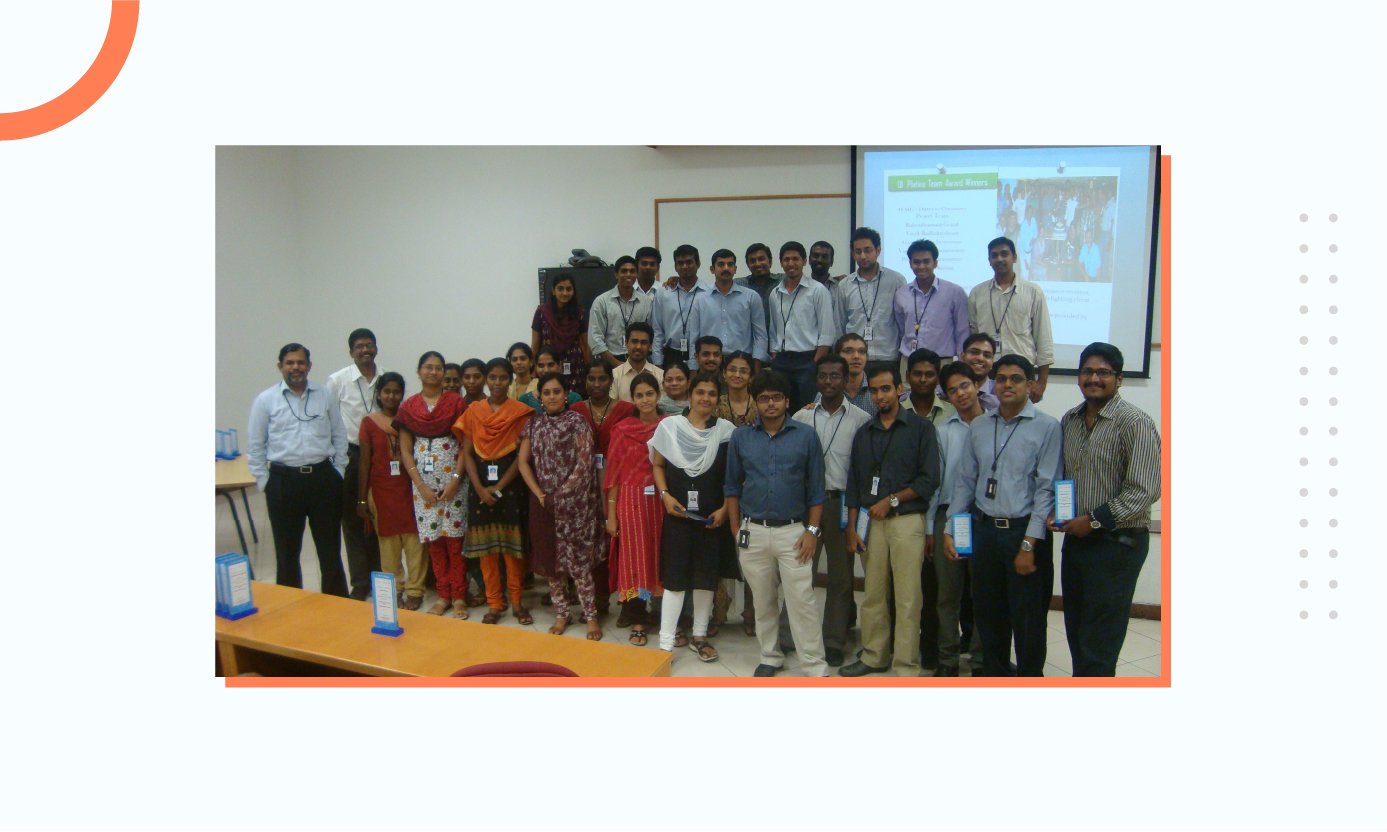
Vivek Soon Became A Lead And Moved To The US
His managers noticed his proactiveness, and Vivek climbed up the ranks.
"Today, you can choose and change projects. At least in Axelerant, you can. But it wasn't so back then. I was working on front-end and back-end using multiple technologies," he said.
When clients shared PSD files, from which images had to be extracted, cut optimally, and uploaded on the website—Vivek had to learn Adobe Photoshop.
After three years into the project, he became a consultant lead and emigrated to the US.
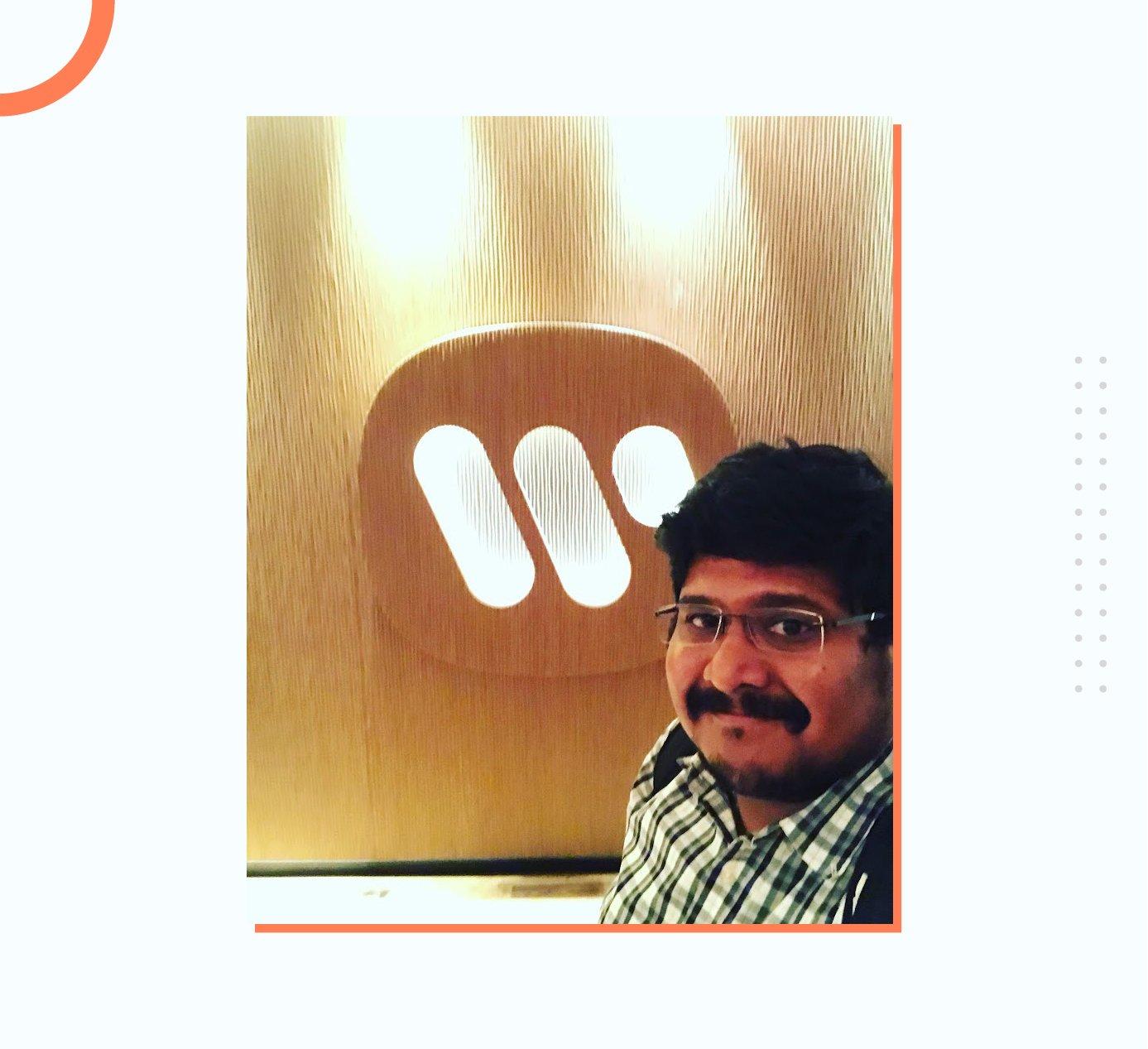
Growing And Learning New Things
In the US, his work experience transformed to a whole new level.
He started interacting with his clients face-to-face.
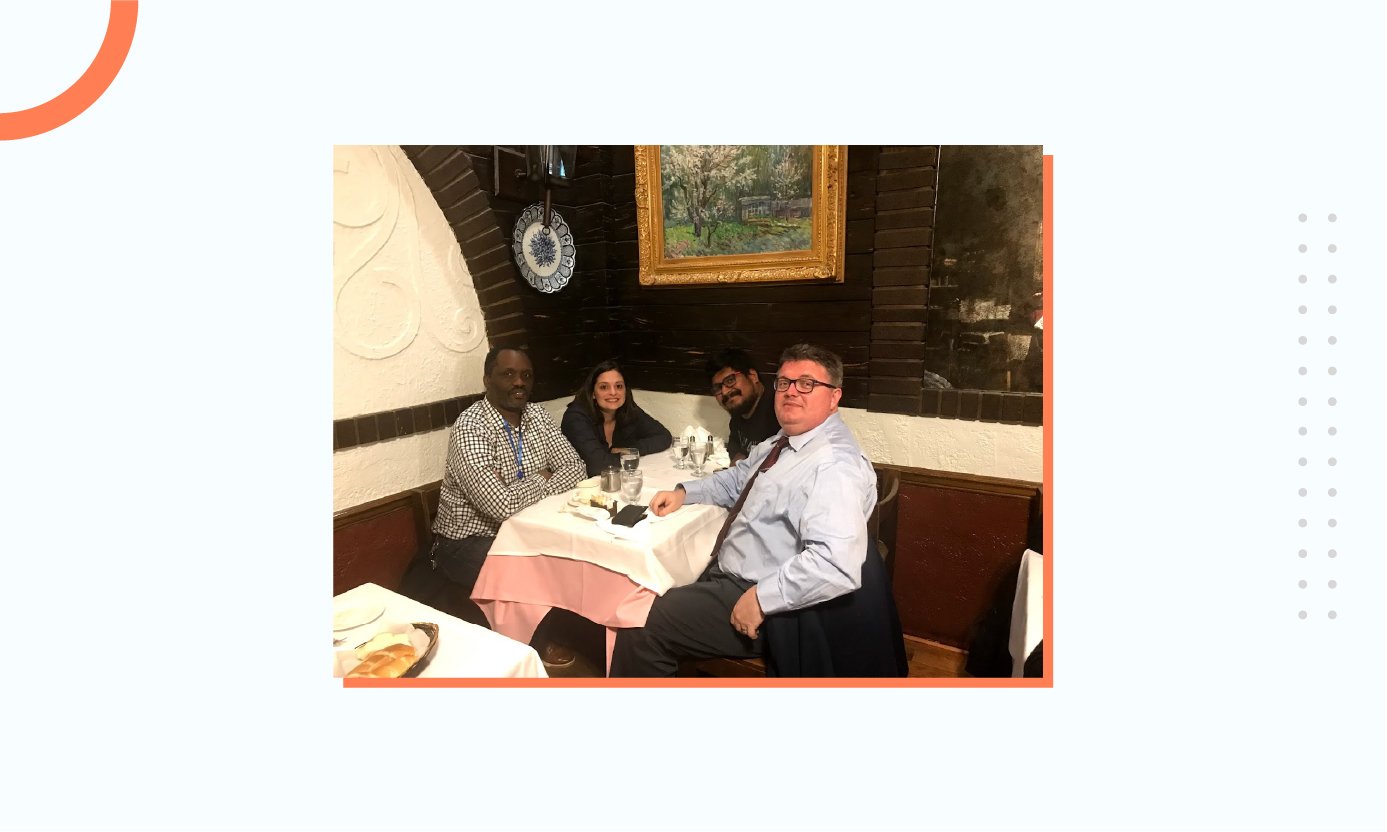
He saw their problems up close, attended their office parties, and went to lunch meetings with them to discuss work.
He collaborated with multiple client's-side stakeholders, graphic designers, digital and content marketers, and engineers from different departments.
At the Warner Music website launch party, he saw the glitz and glamor that his team's work supported.
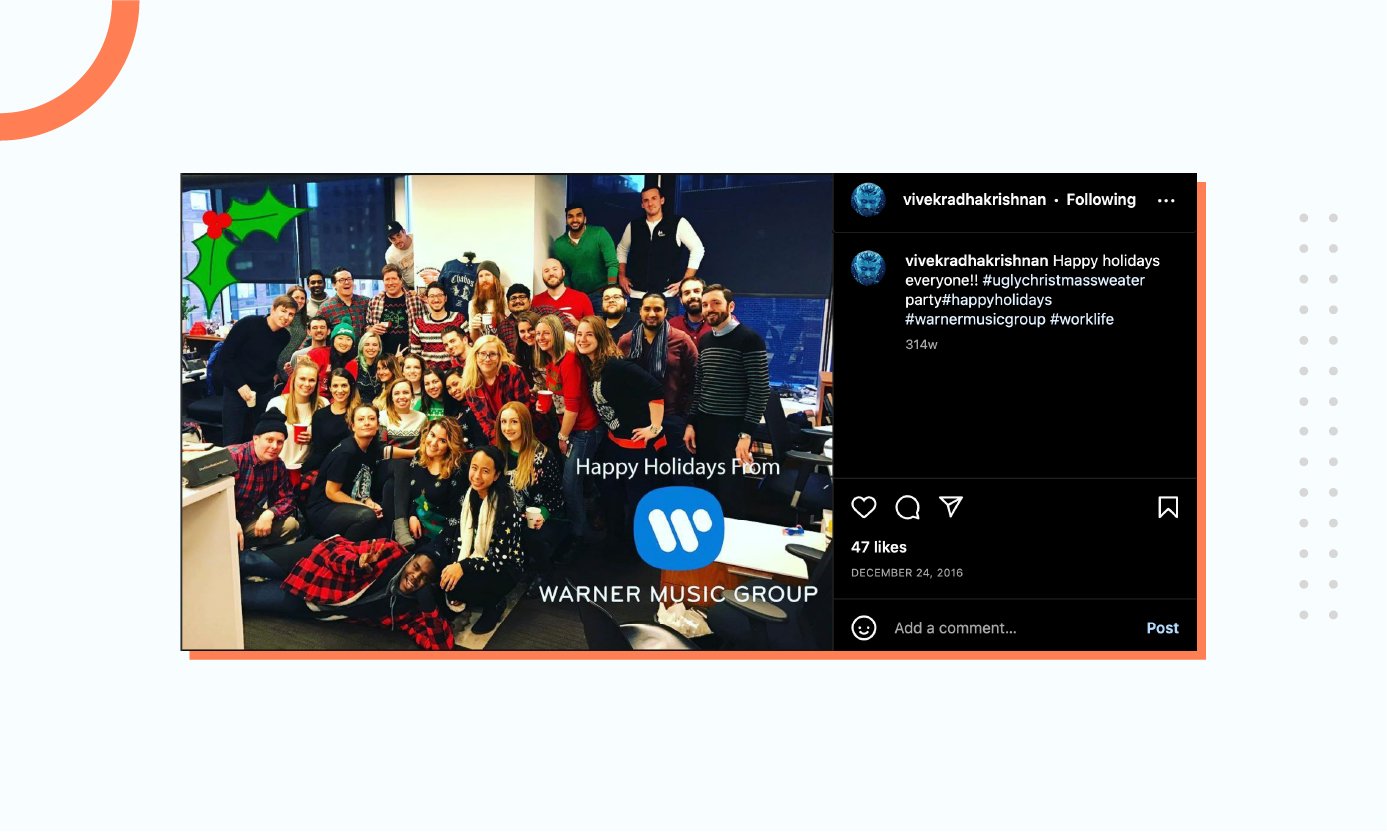
"I understood the importance of fostering good relationships with the clients," he shared.
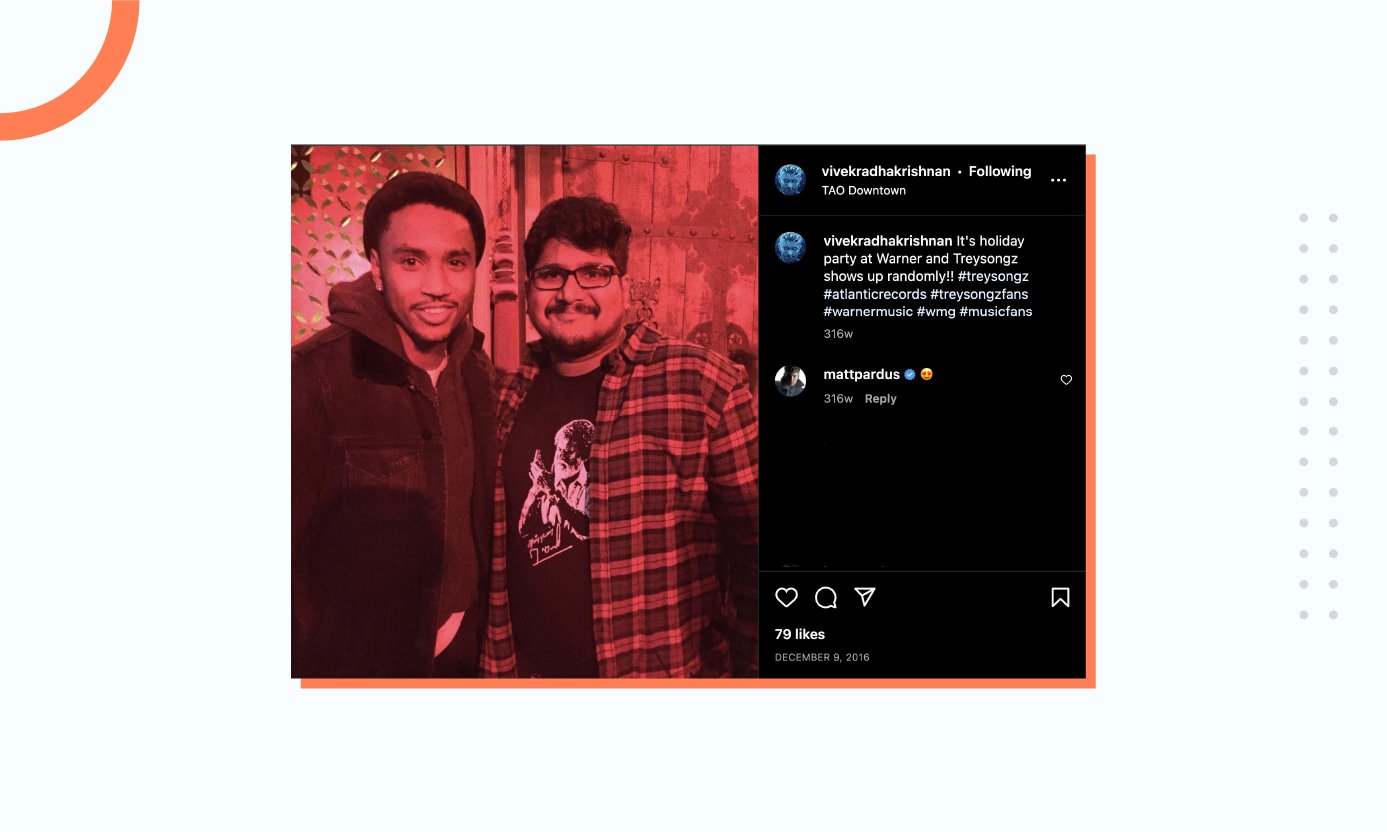
For Nine Years, He Worked In The Same Project
He started absorbing newer technologies, too.
Having clients in the entertainment industry meant following the latest marketing trends in whatever they developed.
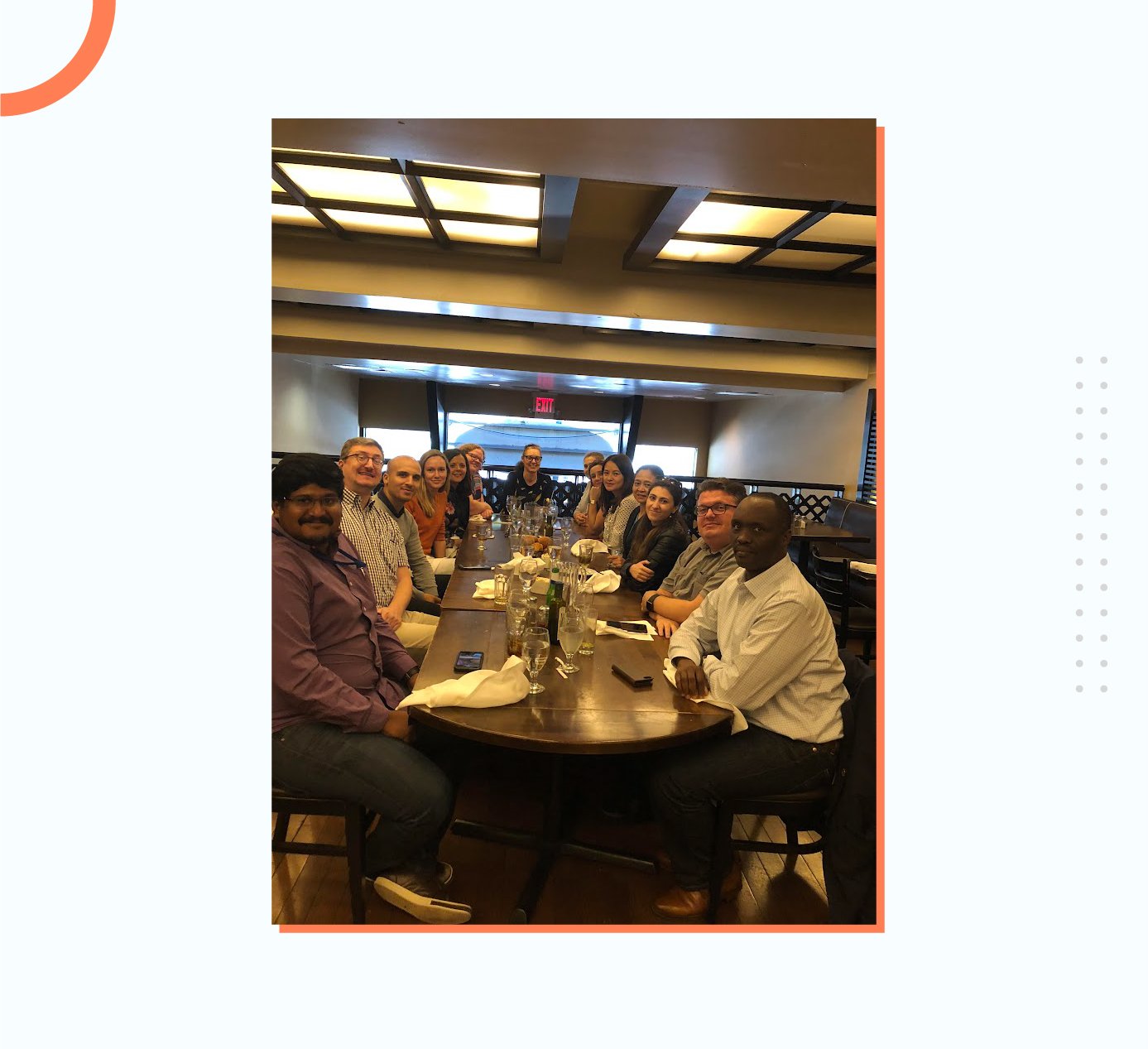
"I had to show my skills in Photoshop, Adobe XD, wireframing. I had to research user interface (UI) and user experience (UX). And I was doing DevOps work as well."
The client website was built on Drupal CMS (content management system). But for e-commerce, it was integrated with Magento.
Vivek had to dabble in both to guide and implement changes.
For nine years, he worked for the same company, on the same project, guiding a team of 15-20 people.
Finally Moving On To Join The UN
He joined the United Nations Department of Global Communications as a Drupal Consultant Specialist.
"It was like a dream come true," he shared.
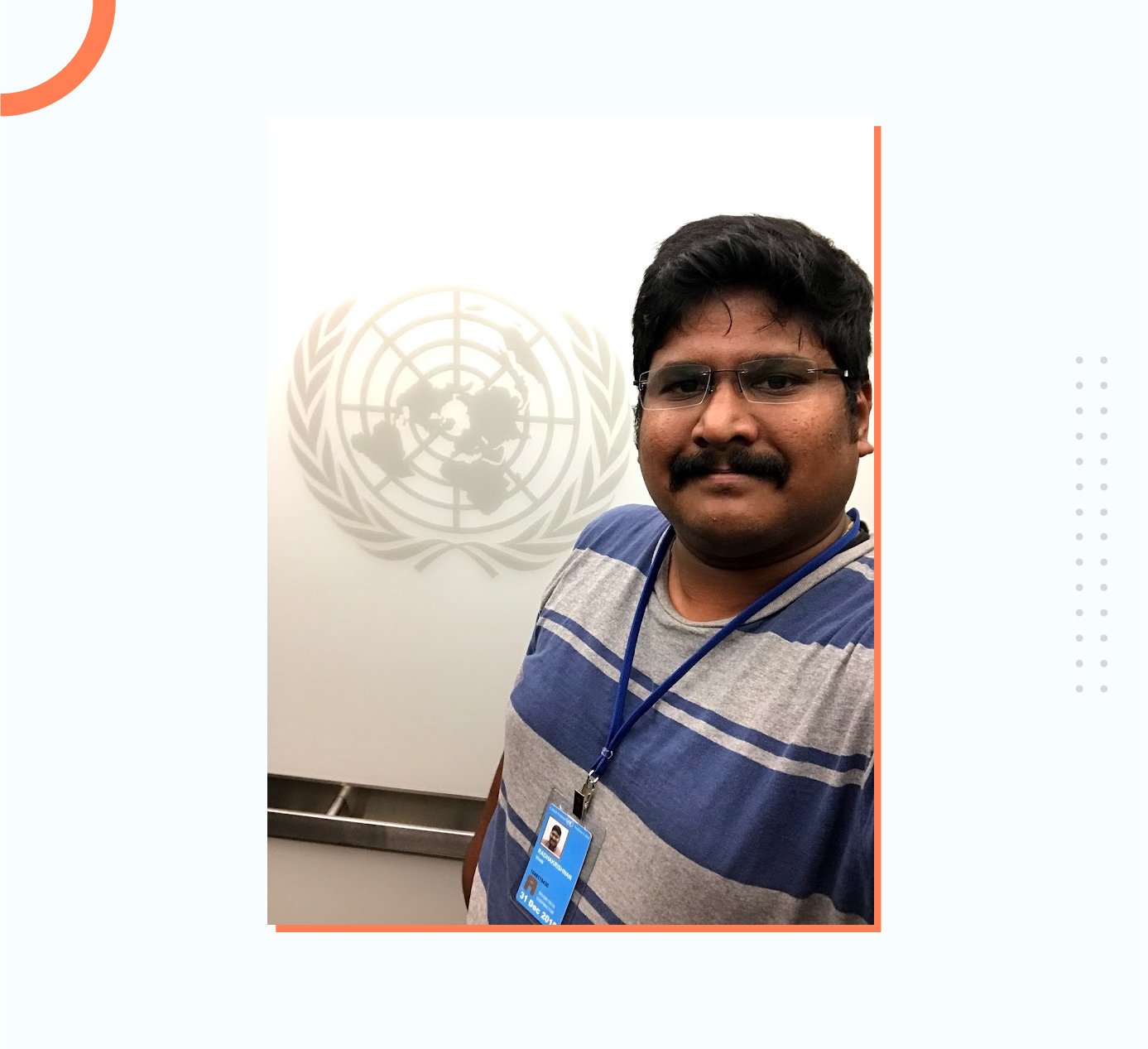
The job was contractual, so he sometimes had to wait for work. And he was a one-person team.
Vivek worked on building the UN news website in Hindi, and maintained it in eight other languages, including Portuguese and Kiswahili.
"It was a rewarding experience. I learned a lot about branding and tonality," he shared.
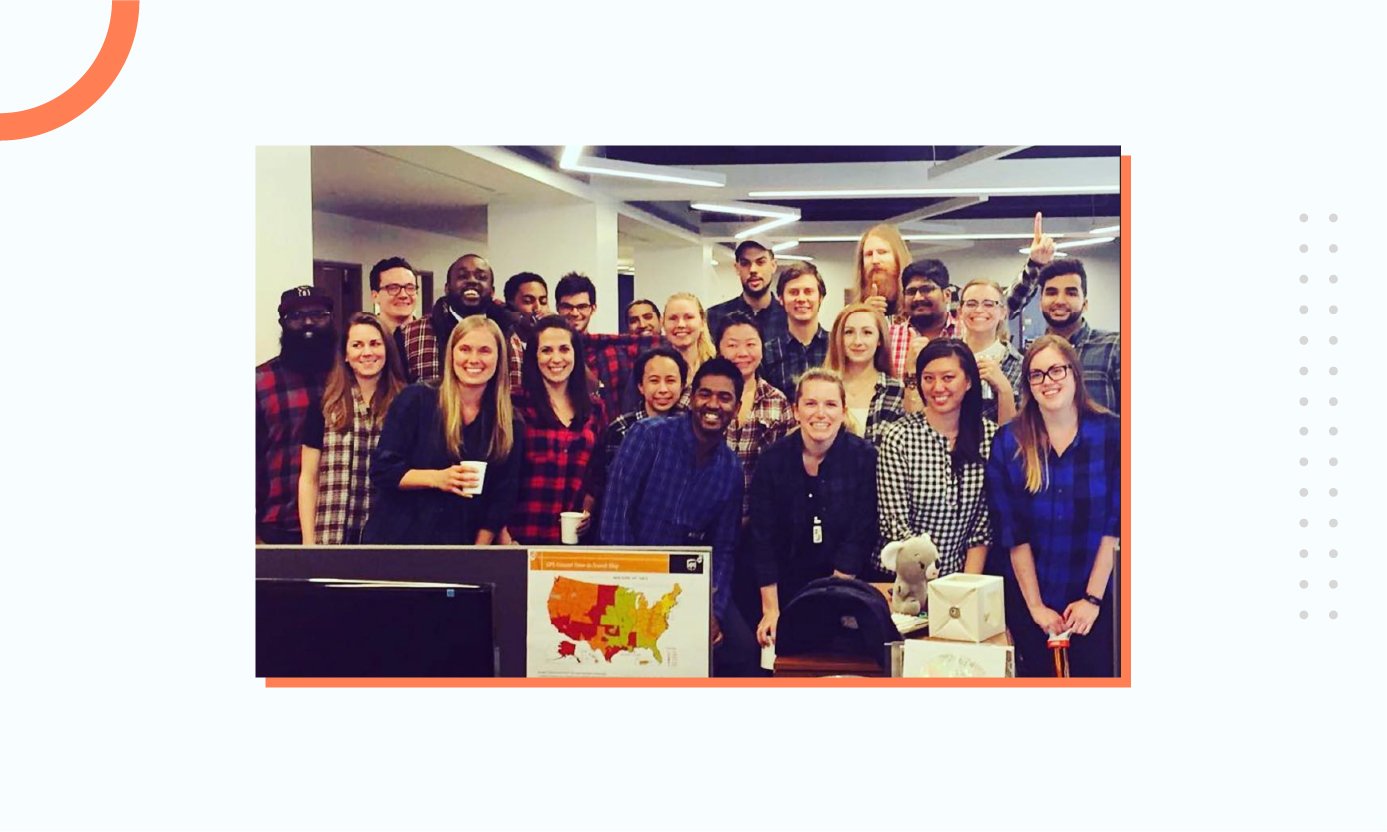
He implemented his learnings from previous experiences on how DNS (Domain Name System), Google search engine optimization, and everything related to a website launch worked.
And Pulling Off A Design Stunt During The UN General Assembly
During the 2018 UN General Assembly, the only graphic designer on the team was absent.
And there was a design emergency.
They needed help with a feature that would show the summit's highlights—in the form of illustrations—in separate pages and sections of the UN news website.
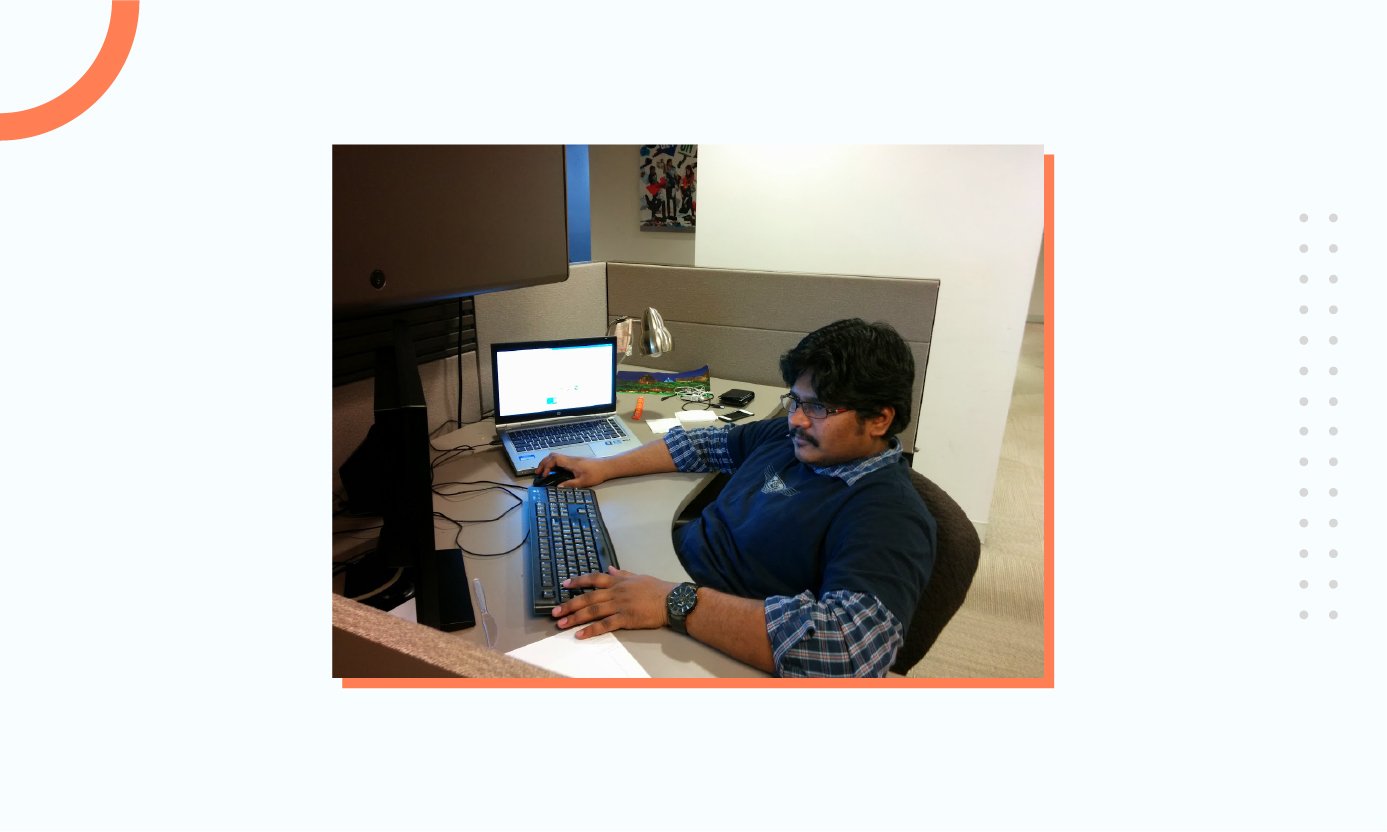
The only one with previous Photoshop experience, Vivek volunteered to create and edit the illustrations while working on the feature.
His manager, unsure, took a chance and assigned him to the job.
"I never imagined myself using my Photoshop skills at the UN that I had learned at the start of my career. But everything worked out for the best," Vivek shared with a glint on his face.
He Realized That It Was Time For Him To Come Home
The feature’s success wasn't all that happened during the 2018 General Assembly. Vivek had an epiphany—a realization that would bring him back to India.
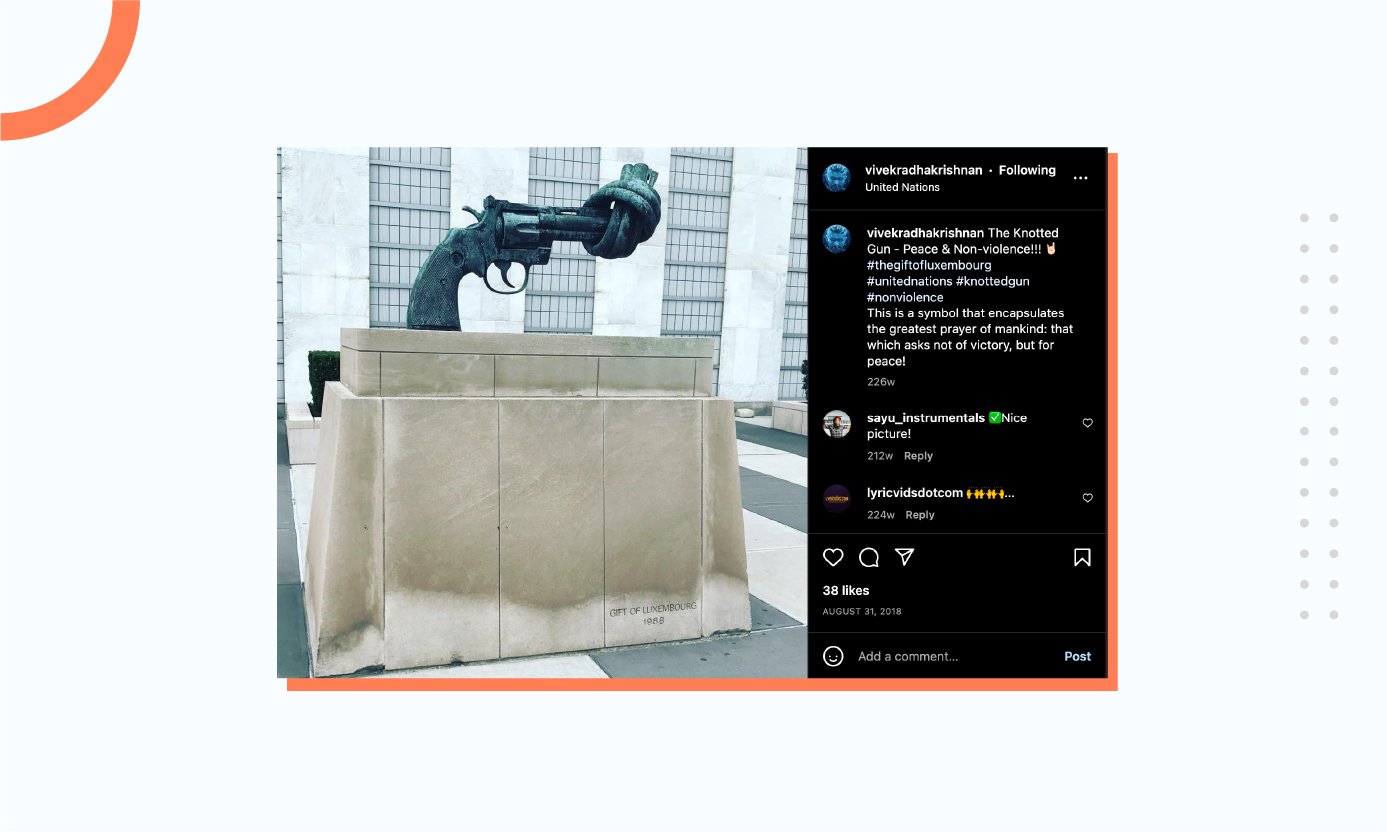
As a contractor, Vivek had to enter his office—the UN headquarters— through the tourist queue.
It meant enduring extensive security checks, every day.
"During the 2018 UN General Assembly, I waited in line for three hours to enter the building," he shared.
Standing there, among thousands of people from around the world, he got enough time to accept his feelings: for the first time in years, he wanted to return home.
Vivek Returned To India And Found Himself Stuck
In 2019, he returned to India and continued working contractual jobs for the UN.
But working the graveyard shift to match US office hours and not having many colleagues to collaborate with were getting to him. It was time to switch to a full-time, day job.
During an interview for a new job, he was promised a consultant lead position, which never materialized into reality. Instead, he remained benched for the greater part of the year—for the first time in his career.
And for the first time, he got enough time to explore other initiatives to contribute to.
He worked on product development and built a middle-tier application using Node.js, MongoDB, and Azure for the product logging and monitoring utility.
Joining Axelerant To Revive His Career
"I really wanted to get in, especially after reading about Axelerant's work culture and talking to some current team members," he said.
He became Axelerant's first hired staff engineer and joined as a Drupal Technical Architect in the summer of 2021.
"It was a learning experience right from the beginning. I didn't even know what performance coaching was," he shared.
After the two-week onboarding, Vivek jumped on a high-end project starting from scratch.
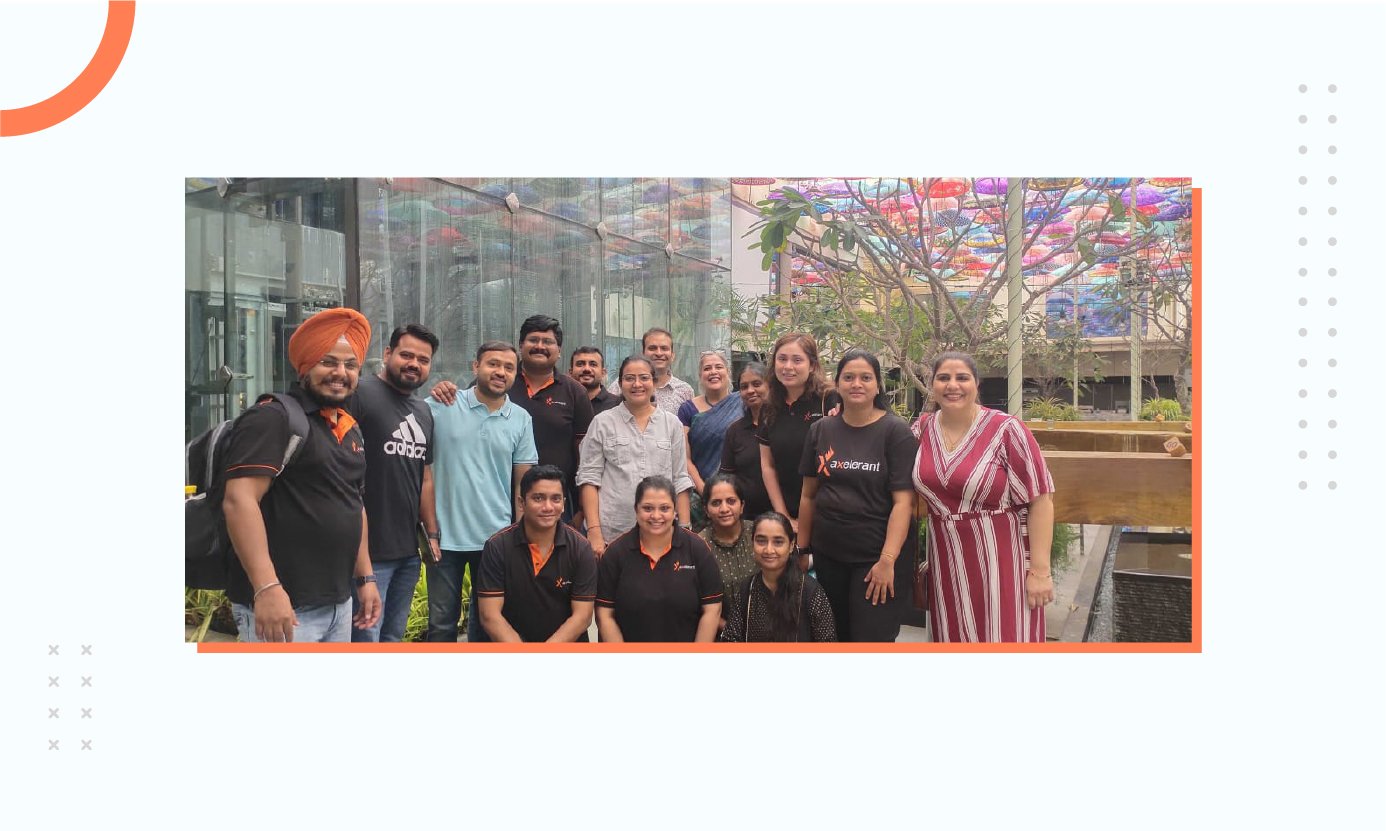
"We were given a good amount of liberty to try out things. I learned a lot in that project, like using Site Studio," he shared.
To Make A Career Shift That No One Saw Coming
Vivek always worked on the ground: dealing with clients, coming up with solutions, and implementing them.
As the project drew closer to completion in spring 2022, he started fishing for something new, something he had never considered before.
And that something was engineering career management, or as his official title read: Technical Workforce Manager.
"I love my new role. The best part is that I get to talk to people and support them while learning new things daily," he said.
Vivek helps people achieve career goals by guiding them to the right resources and, often, removing obstacles.
"I help people grow in their career," he said.
And He Continues To Learn New Things To Grow
"I have to learn how to best guide people, research career options, courses, focus on team member promotions, and a bunch of new things," Vivek shared.
He always focused on the logic behind technologies and did his best to learn and implement the solutions.
"All you have to do is put your hands up and say, 'Let me do it.' Not let me try to do it. Trying is a way to say that I don't want the commitment. I'll just touch this and come back."
Inspiring Others To Follow Suit
Vivek believes that everyone can have an extraordinary career, if they are willing to step out of their comfort zones.
“A lot of times, people pigeonhole themselves into a particular platform or technology stream,” he said.
He believes that a shift in platform- or technology-specific focus to the underlying modules and frameworks, which are common in most cases, can provide people with greater options to explore.
“One only has to be willing to expand their horizons. The framework remains the same, only the specifics might differ, which can be easily learned,” he said.

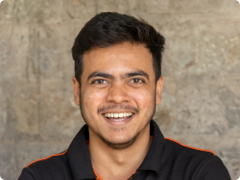
Rohit Ganguly, Content Marketer
Rohit is a content marketer first and a YouTuber second. He loves to interact with animals, feed them, clean his apartment, and spend time with friends and family. Curious by nature, he also enjoys literature, movies, meditation, and calligraphy.
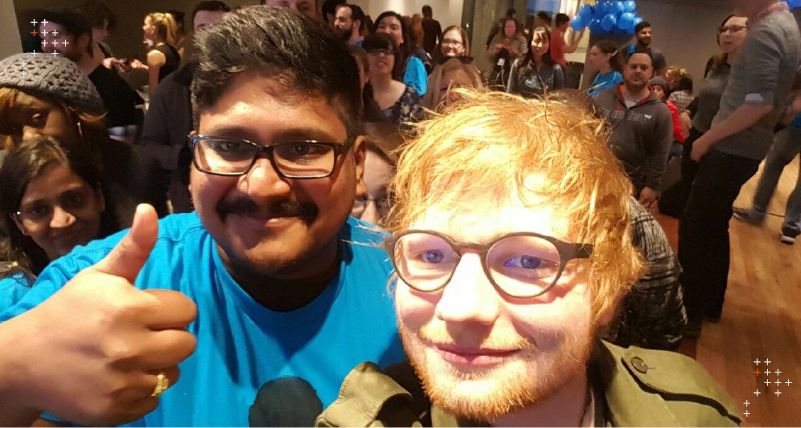
 We respect your privacy. Your information is safe.
We respect your privacy. Your information is safe.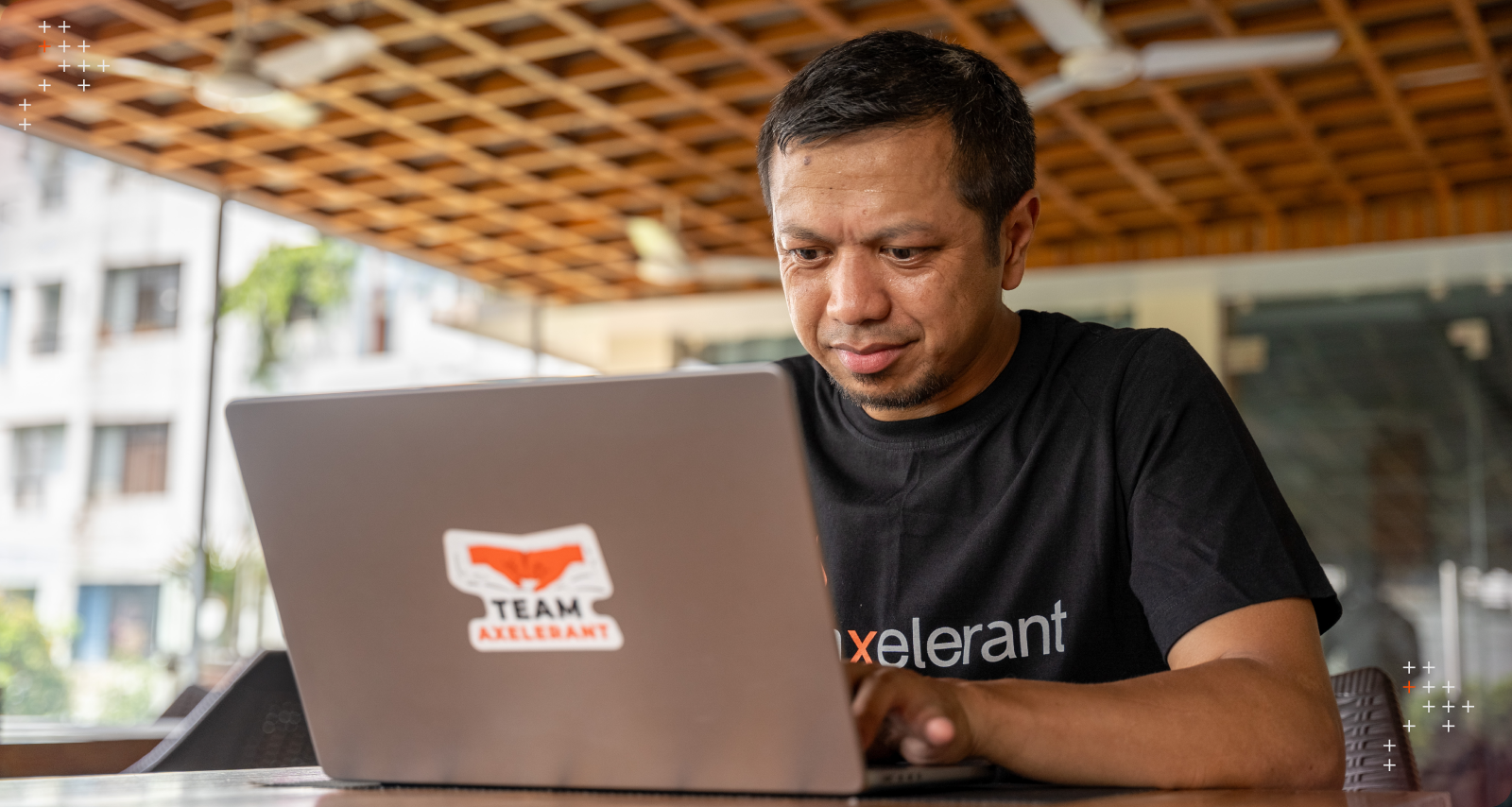

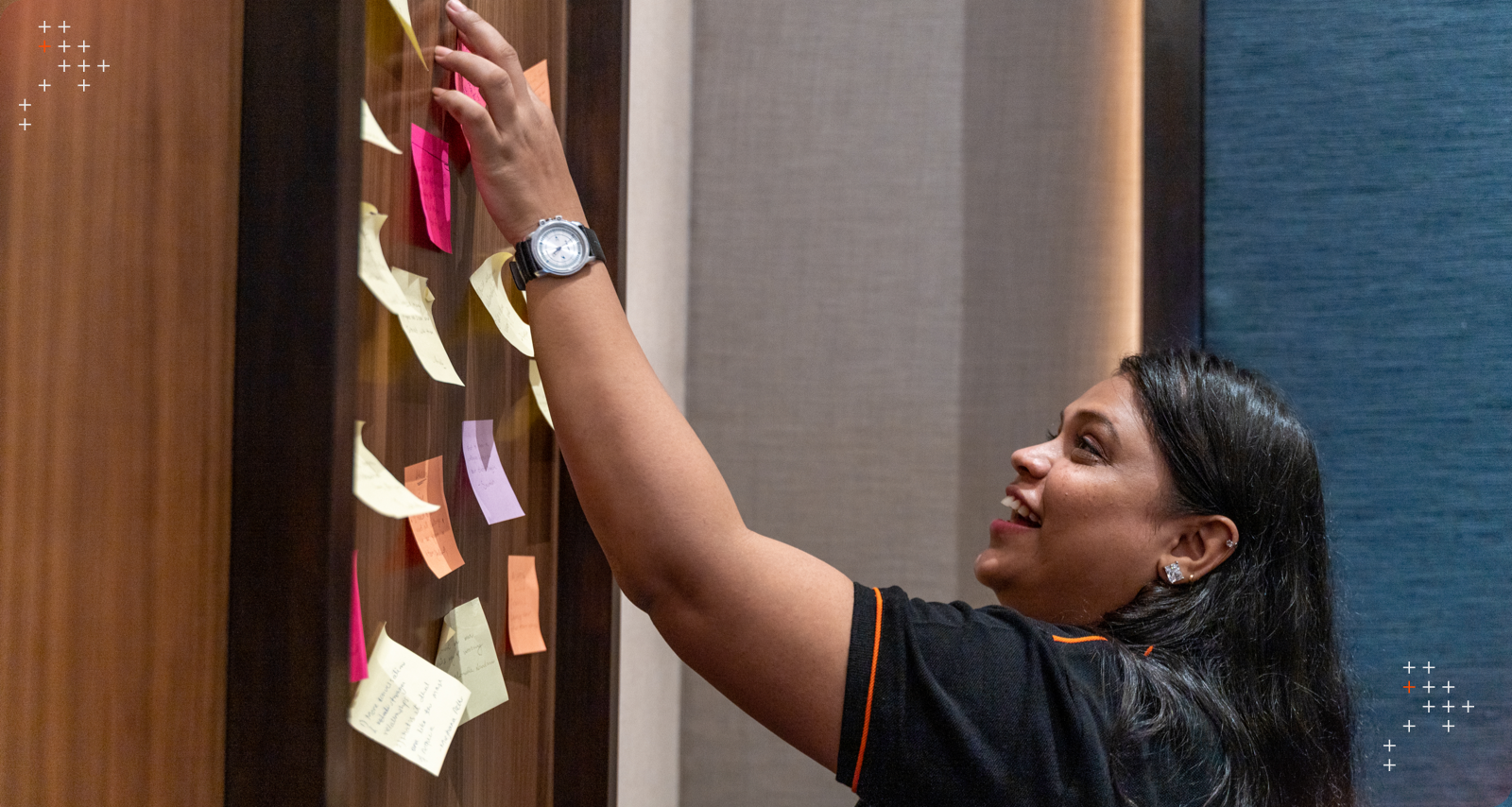

Leave us a comment